Hi folks, Beijing Channel will experiment with a new series, Beijing Stories. In this series, the newsletter will share anecdotes of China’s past diplomatic endeavors, which foreshadowed Chinese foreign policy today.
Please don’t hesitate to comment or send an email sharing your thoughts on the new series so that this newsletter can best serve your interests.
***
According to China's Archive Law and Archive Law Implementation Measures, archives since the founding of the PRC should be declassified to the public after 30 years.
Although many diplomatic cables are highly classified, they should nevertheless be declassified according to law. Therefore, MoFA has been considering and preparing the declassification of relevant files since the 1990s. Various offices within the ministry combed through the archives and determined which cables could be made public.
In 1999, the MoFA set up an Open Archives Appraisal Team comprised of retired diplomats tasked with declassifying and appraising archives. After more than four years of preparation, on January 16, 2004, MoFA opened the Open Archives Loaning Office, which marked the first time the public had access to previously classified documents preserved by the ministry.
Minister of Foreign Affairs Li Zhaoxing (second from right), Senior ministry official Qiao Zonghuai (first from left) and Director of the Open Archives Loaning Office Lian Zhengbao (first from right) attending the unveiling ceremony of the Open Archives Loaning Office of the Ministry of Foreign Affairs.
According to law, all archives before 1974 could be declassified. Considering China's domestic situation and certain practicalities, the relevant archives would be released to the public in stages and batches.
Xu Yicong, once served as Deputy Director-General of the Latin America Office and the Chinese Ambassador to Ecuador, Cuba, and Argentina.
The first batch of cables set to be declassified is dated from 1949 to 1955, the first 7 years of the PRC. Seven retired ambassadors spent half a year reviewing the first batch of files, one of whom was ambassador Xu Yicong.
The following are based on Xu’s recollection.
From April to October 2002, MoFA planned to declassify the first batch of files and was advised by a more senior agency to “handle [the files] with caution."
MoFA had set up a leading group for the Open Archives Appraisal Team, led by Vice Minister Wang Guangya. The Director of the General Office and the Director of the Archives served as deputy team leaders.
Carrying out the actual work were Xu Yicong, the executive deputy team leader, and six retired ambassadors.
The archive review lasted for half a year. During this time, the seven ambassadors who had just retired had to resume their work schedule. They reported daily to the Ministry of Foreign Affairs archives.
"We worked from 8:00 to 11:30 in the morning. Then we took a break after lunch and continued to look at the archives from 1:00 to 5:00 in the afternoon. The archives staff jokingly called us the 'Seven Gentlemen'.
To ensure the declassified files were eligible to be disclosed to the public, the “Seven Gentlemen” adopted a systematic approach to divide their responsibility.
The piles of files that everyone assessed every day were 60 centimeters to 1 meter thick. If one did not finish reading it that day, they would return it and pick it up the next day. The number of archives varied daily because the archives varied in length, with the thickest being several hundred pages and the thinnest with only more than a dozen pages. Many archives had relatively small handwriting, which was very hard to read, and the kinds of paper were also different. Some were office paper, some were rice paper, but they were all original. Some had even been pasted so that they became thin and brittle. A small number had even been restored before.
Some declassified archives
For the sake of convenience, the six team members carried out their job independently, and all handed their work to Xu to sign off.
"We had all read the archives and have been involved in archiving work before. After reading a batch, we would decide which contents may harm national security interests or should not be released based on a set of unified principles and standards. Some questionable files even required a discussion among us." Xu said.
In most cases, each team member would form an opinion on each file and leave a signature if they thought the file was suitable for release. The files would then be forwarded to Xu, who would give the final say. So Xu was the one who read all the files from beginning to end.
"Under a general principle of review, we would write on the opinion letter 'agreed to declassify', 'suspended declassification’ or 'other consideration' according to each situation."
The first batch of archives created by the MoFA between 1949 and 1955 mainly reflected the establishment and development of China's foreign relations in the early days of the PRC and the political, economic and cultural exchanges with foreign countries. There were also files regarding China’s effort to restore seats in the United Nations and other international organizations, participation in two important international conferences - the Geneva Conference, the Bandung Conference, etc., as well as documents and materials on diplomatic matters such as consular protocols, courtesy and treaty laws.
The new accessibility of these archives to the public would help people at home and abroad to understand the diplomatic practice and great achievements of the PRC since its founding; it would also further support studies on PRC's foreign policies and its diplomatic history.
Archives Library of the Ministry of Foreign Affairs
"In the early days of the PRC, China's diplomatic environment was hostile, as can be seen from many archives. Through these archives, young people today can appreciate the hard work of the older generation of leaders behind the Republic's now numerous diplomatic achievements." Xu said.
" When sorting out the relevant documents of the Geneva Conference of 1954, a summary manuscript of Premier Zhou Enlai's participation in the internal meeting of the Chinese delegation was discovered, in which Zhou reflected on his inadequacies during the conference. Such spirit of humility would continue to inspire generations to come."
In this batch of declassified archives, there were also some top-secret files. Xu listed the "Amethyst Incident" and the "Kashmir Incident" as examples.
On the eve of the Yangtze River Crossing campaign on April 21, 1949, the People's Liberation Army artillery had several battles with the HMS Amethyst and other British warships, which greatly damaged the HMS Amethyst that shocked the world.
Looking up files online
Many people are familiar with the incident, and the media has also reported it, but few people know the event's details and the diplomatic story behind it. The first batch of files declassified to the public contains the most authoritative accounts on this matter.
The picture shows Premier Zhou arriving at Kallang Airport in Singapore by a chartered plane on the morning of April 16, 1955. (Originally Published by Xinhua News Agency)
In addition, little is known about the Kashmir Princess Incident of 1995, planned and fabricated by the Chiang Kai-shek Group for the purpose of assassinating Premier Zhou. The first batch of archives also contains official records of this incident.
This story is originally published by Beijing Youth Daily on Jan 27th, 2013 and carried by WeChat Blog Approaching Diplomacy.

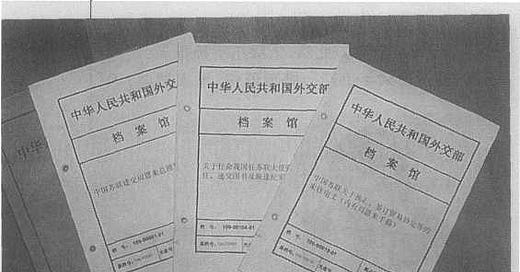

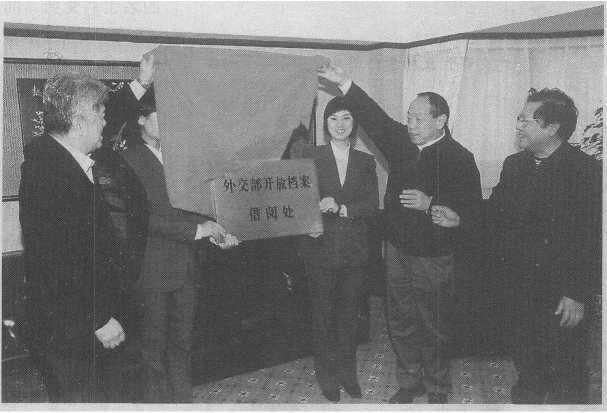
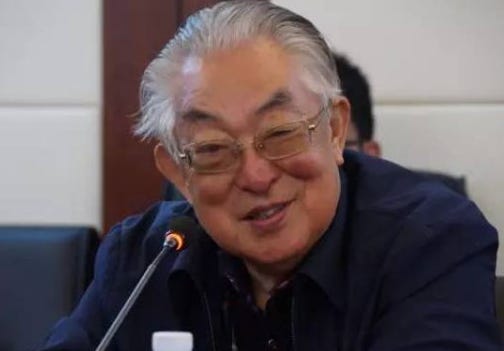
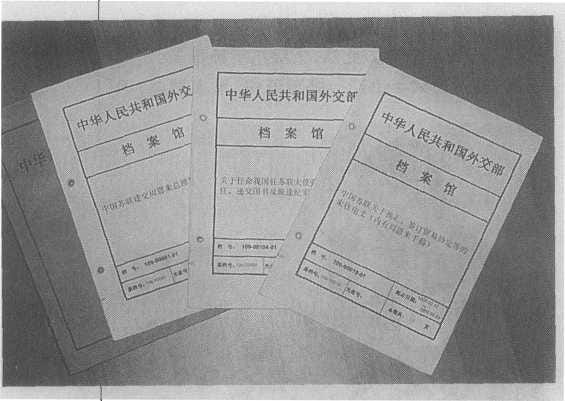
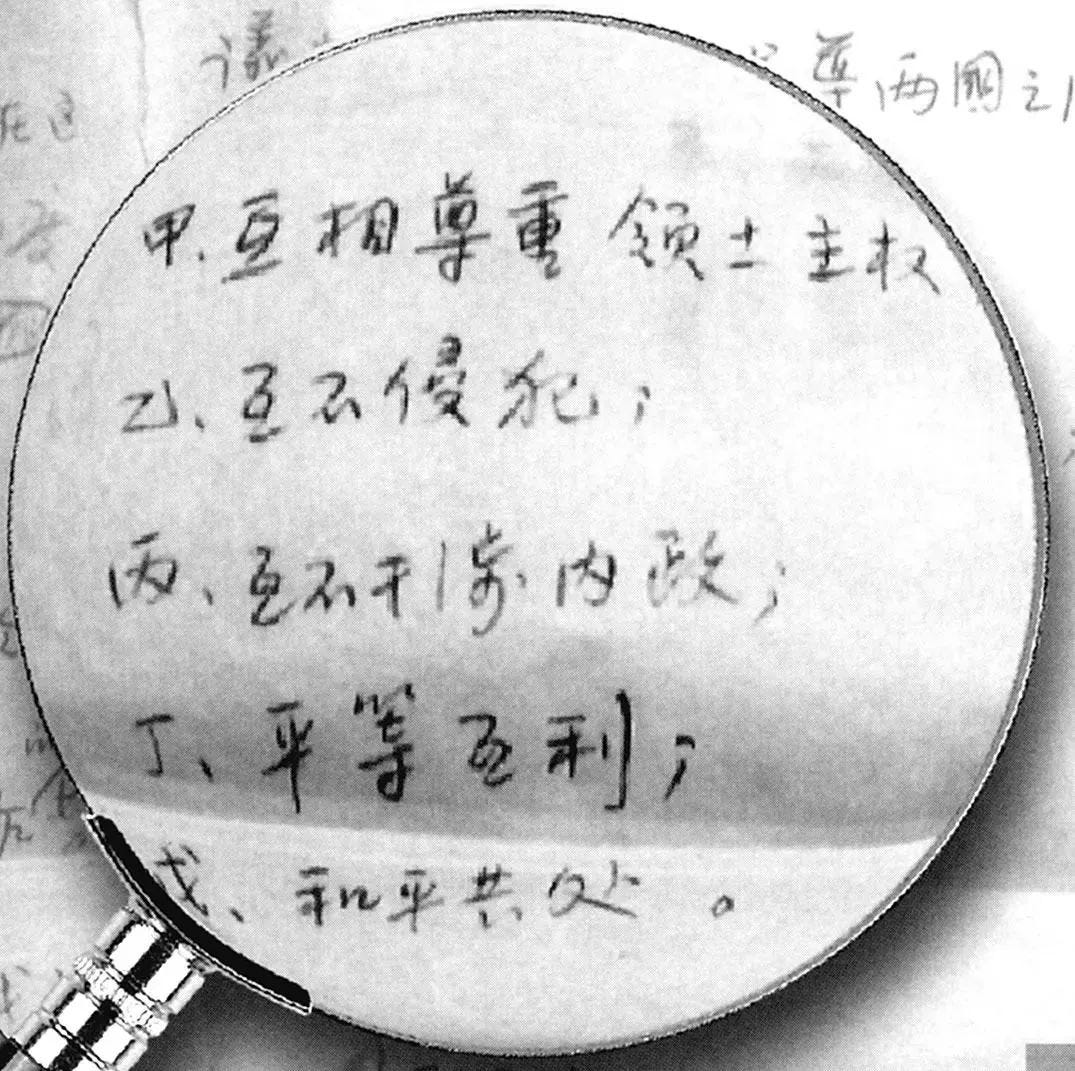
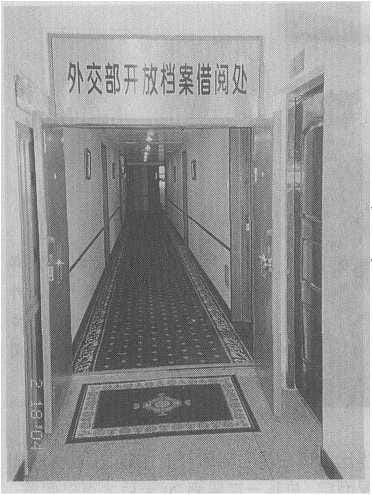
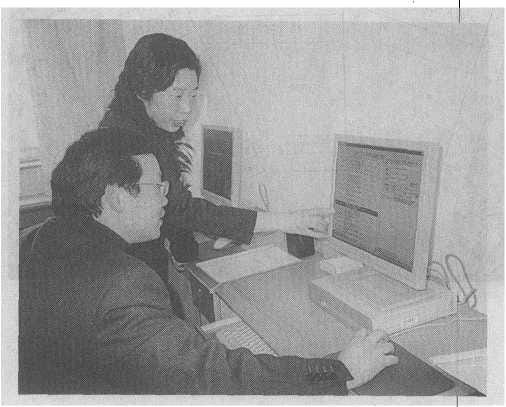
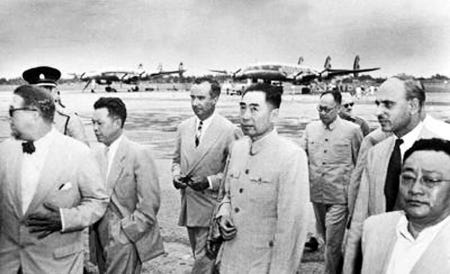

Love this new format!